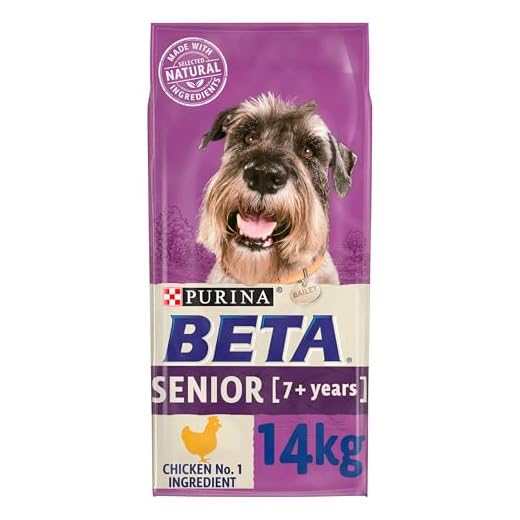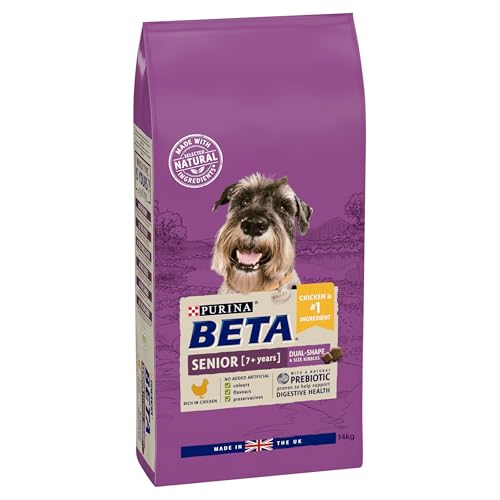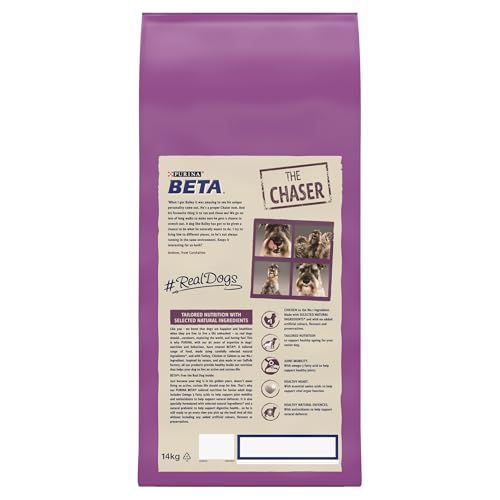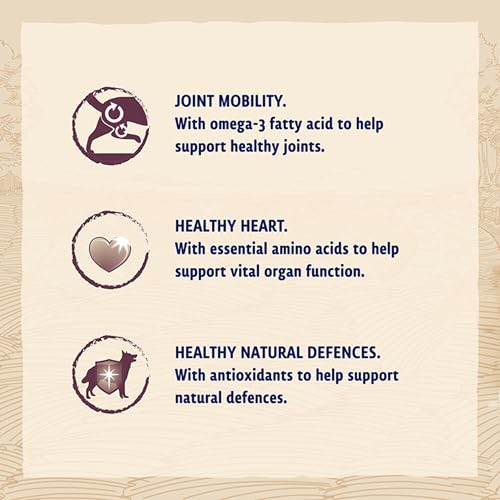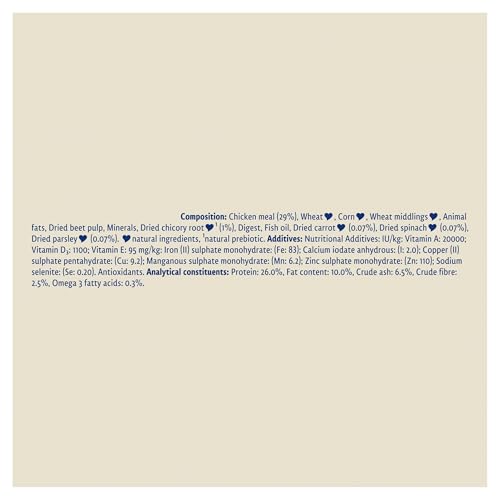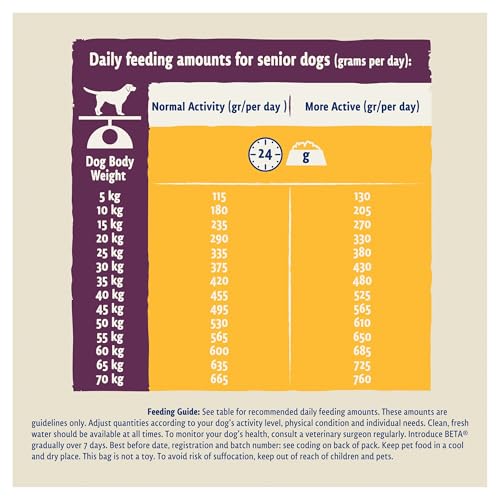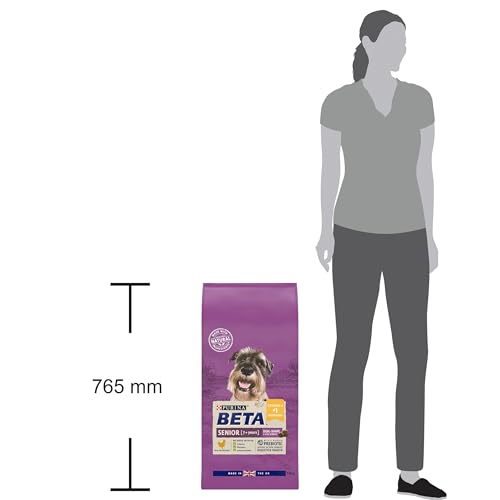








As a devoted dog owner, I’ve always strived to provide the best care for my furry companion. One of the most crucial aspects of this care is ensuring that my dog gets the right nutrition. Choosing the best food for house dogs is not just about picking any random bag of dog food from the store; it involves understanding their dietary needs, preferences, and health requirements.
When I first adopted my dog, I was overwhelmed by the sheer number of dog food brands and types available. From dry kibble to wet canned food, raw diets, and home-cooked meals, the options seemed endless. I quickly realised that finding the best food for my dog required careful research and consideration. I needed to understand the ingredients, nutritional content, and the specific benefits each type of food offered.
Through my journey, I discovered that the best food for house dogs is one that provides a balanced diet, suits their specific breed and age, and addresses any health issues they may have. For instance, puppies have different nutritional requirements compared to adult dogs, and senior dogs may need food that supports joint health and mobility. Additionally, dogs with allergies or sensitive stomachs often benefit from specialised diets that avoid common allergens like wheat, soy, or certain proteins.
In this article, I will share the insights and knowledge I’ve gained on choosing the best food for house dogs. From understanding the importance of high-quality ingredients to recognising the signs of a good diet, my aim is to help fellow dog owners make informed decisions that will keep their pets healthy and happy. Let’s delve into the world of canine nutrition and uncover what it takes to provide our beloved dogs with the best possible diet.
Understanding Your Dog’s Nutritional Needs
When it comes to ensuring my dog lives a healthy and happy life, understanding their dietary requirements is essential. Each dog is unique, and their nutritional needs can vary greatly depending on factors such as age, breed, size, and activity level. To provide my furry friend with the best possible diet, I’ve learned to focus on key nutritional components and to pay close attention to their individual needs.
One of the most important aspects of a dog’s diet is the balance of proteins, fats, and carbohydrates. Proteins are vital for muscle development and repair, while fats provide a concentrated source of energy and support cell function. Carbohydrates, although not essential, can offer a quick energy boost and aid in digestive health. By ensuring my dog’s diet includes the right proportions of these macronutrients, I can support their overall well-being.
Key Nutrients for Optimal Health
Beyond the basic macronutrients, certain vitamins and minerals play crucial roles in my dog’s health. Here are some essential nutrients to consider:
- Vitamins: Vitamins A, D, E, and K are fat-soluble and necessary for various bodily functions, including vision, bone health, and immune response. B-complex vitamins and vitamin C, which are water-soluble, support energy metabolism and tissue repair.
- Minerals: Calcium and phosphorus are essential for strong bones and teeth, while iron is crucial for oxygen transport in the blood. Zinc supports skin and coat health, and selenium acts as an antioxidant.
- Omega-3 and Omega-6 Fatty Acids: These essential fats are vital for maintaining healthy skin and coat, reducing inflammation, and supporting brain and eye development.
Additionally, ensuring my dog has access to fresh water at all times is fundamental. Proper hydration is crucial for digestion, temperature regulation, and overall cellular function.
To tailor my dog’s diet to their specific needs, I often consult with my veterinarian. They can provide guidance based on my dog’s health status and lifestyle. By staying informed and proactive about my dog’s nutrition, I can help them thrive and enjoy a longer, healthier life.
Best Commercial Dog Food Brands for Optimal Health
As a devoted pet owner, I understand the importance of choosing the right food to ensure the health and well-being of our canine companions. Selecting the best commercial dog food is crucial because it impacts everything from their energy levels to their coat condition. The right diet can help prevent a range of health issues and support overall vitality.
Over the years, I have researched and tested various dog food brands to find those that provide the highest nutritional value. In this guide, I will share some of the most reputable brands that have consistently demonstrated excellence in promoting optimal health for dogs.
Leading Dog Food Brands for Superior Nutrition
-
Orijen
Orijen is renowned for its biologically appropriate recipes, which mirror the natural diet of wild canines. They use high-quality, fresh regional ingredients and include a variety of meats, organs, and cartilage to provide a balanced diet. This brand avoids fillers and artificial additives, making it a top choice for those seeking premium nutrition for their pets.
-
Blue Buffalo
Blue Buffalo focuses on natural ingredients and offers a range of formulas tailored to different life stages and dietary needs. Their Life Protection line, for example, includes real meat as the first ingredient, along with wholesome grains, fruits, and vegetables. They also incorporate LifeSource Bits, a blend of antioxidants, vitamins, and minerals to support immune system health.
-
Wellness Core
Wellness Core is a grain-free brand that prioritises protein-rich nutrition. Their recipes feature deboned meat, fish, or poultry as the primary ingredient and are fortified with essential nutrients. The brand’s focus on high-quality protein sources and absence of artificial preservatives and colours makes it a favourite among pet owners.
-
Merrick
Merrick dog food prides itself on locally sourced ingredients and small-batch cooking to ensure quality and freshness. Their Grain-Free line is particularly popular, offering a high protein content with deboned meat as the first ingredient. Merrick also offers specialised formulas to cater to specific dietary needs, such as limited ingredient diets for dogs with food sensitivities.
-
Hill’s Science Diet
Hill’s Science Diet is backed by extensive scientific research and is often recommended by veterinarians. This brand offers a variety of formulas tailored to different health concerns, including weight management, digestive health, and skin conditions. The balanced nutrition provided by Hill’s Science Diet supports overall health and longevity.
Homemade Dog Food Recipes: Pros and Cons
As a devoted pet owner, I always want the best for my furry friend, and that includes their diet. Preparing homemade dog food can be a rewarding experience, giving me full control over what my dog consumes. However, this approach comes with its own set of challenges and considerations. Let’s delve into the advantages and potential drawbacks of making dog food at home.
First and foremost, homemade dog food allows me to select high-quality ingredients. I can ensure that my dog gets fresh, nutritious food without any harmful additives or preservatives. This can be especially beneficial if my dog has specific dietary needs or allergies. By tailoring recipes to suit these needs, I can help manage their health conditions more effectively.
Advantages of Homemade Dog Food
- Quality Control: I know exactly what goes into my dog’s meals, ensuring they are free from unhealthy fillers and artificial ingredients.
- Customization: I can create recipes that cater to my dog’s unique dietary requirements, whether they need a low-fat diet or have allergies to certain proteins.
- Bonding Experience: Preparing food for my dog can strengthen our bond, making me feel more involved in their well-being.
- Transparency: I have peace of mind knowing the source of all ingredients, which is often a concern with commercial dog foods.
Drawbacks of Homemade Dog Food
- Time-Consuming: Preparing homemade dog food can be quite time-intensive, requiring careful planning and preparation.
- Nutritional Balance: Ensuring that homemade meals meet all of my dog’s nutritional needs can be challenging. It often requires consultation with a veterinary nutritionist to avoid deficiencies.
- Cost: High-quality ingredients can be expensive, and the overall cost of homemade dog food can exceed that of commercial options.
- Storage and Shelf Life: Homemade dog food typically has a shorter shelf life and requires proper storage to maintain freshness and prevent spoilage.
In conclusion, while homemade dog food offers numerous benefits, it also demands a significant investment of time, effort, and resources. Balancing these factors is essential to ensure my dog remains healthy and happy. Consulting with a vet and conducting thorough research can help me make informed decisions about my dog’s diet.
Grain-Free vs. Grain-Inclusive Diets for Dogs
When considering the best diet for your dog, one of the key decisions is whether to opt for grain-free or grain-inclusive food. Both have their proponents and unique benefits, and it’s essential to understand the differences to make an informed choice for your furry friend. In this discussion, I’ll delve into the specifics of each type of diet, examining their advantages and potential drawbacks.
Grain-free dog food has gained popularity in recent years, with many believing it mirrors a dog’s ancestral diet. This type of diet typically replaces grains like wheat, corn, and rice with alternatives such as potatoes, peas, and lentils. Proponents argue that grain-free diets can benefit dogs with allergies or sensitivities, potentially leading to improved skin and coat health, better digestion, and increased energy levels. Moreover, some believe that a grain-free diet might reduce the risk of certain health issues like obesity and diabetes.
Benefits and Considerations
One of the primary reasons dog owners choose grain-free diets is due to concerns over allergies. Some dogs exhibit allergic reactions to grains, manifesting as itchy skin, digestive problems, or ear infections. In such cases, a grain-free diet can alleviate these symptoms. Additionally, grain-free food often contains higher protein levels, which can be beneficial for active dogs or those needing to build muscle mass.
However, it’s crucial to note that grain-free diets are not inherently superior for all dogs. Recent studies have raised concerns about the long-term health impacts of grain-free diets, particularly regarding a potential link to canine dilated cardiomyopathy (DCM). This condition affects the heart muscle and can be life-threatening. While the research is ongoing, it’s a reminder that grain-free isn’t automatically the healthiest choice for every dog.
On the other hand, grain-inclusive diets offer a balanced approach that many dogs thrive on. Grains are a valuable source of carbohydrates, providing energy and essential nutrients such as fibre, which aids digestion. Common grains in dog food include barley, oats, and brown rice, each contributing to a well-rounded diet. For dogs without grain allergies, these ingredients can support overall health and well-being.
- Energy Source: Grains are an excellent source of carbohydrates, fueling your dog’s daily activities.
- Digestive Health: The fibre in grains promotes healthy digestion and regular bowel movements.
- Cost-Effective: Grain-inclusive diets are often more affordable than grain-free options, making them accessible to a broader range of pet owners.
In conclusion, the choice between grain-free and grain-inclusive diets depends on your dog’s specific needs and any health conditions they may have. Consulting with a veterinarian can provide valuable insights tailored to your pet’s individual requirements. Whether you choose a diet rich in grains or one without, ensuring it’s balanced and nutritionally complete is key to your dog’s health and happiness.
Identifying and Avoiding Harmful Ingredients in Dog Food
When choosing food for my beloved house dogs, I prioritize their health above all else. Understanding the ingredients listed on dog food labels is crucial to ensuring I provide them with a nutritious diet. One of the key aspects I focus on is identifying harmful ingredients that could potentially harm my dogs’ well-being.
First and foremost, I avoid foods that contain excessive amounts of fillers such as corn, wheat, and soy. These ingredients offer little nutritional value and can be difficult for dogs to digest, potentially leading to allergies or gastrointestinal issues. Instead, I opt for dog foods that prominently feature high-quality protein sources such as real meat or fish as the primary ingredient. This ensures my dogs receive the essential amino acids necessary for their muscle development and overall health.
Additionally, I steer clear of dog foods that include artificial additives and preservatives. These additives, such as artificial colors, flavors, and chemical preservatives like BHA and BHT, serve no nutritional purpose and may even pose health risks to dogs in the long term. Instead, I look for natural preservatives like mixed tocopherols (a source of Vitamin E) that help maintain the freshness of the food without compromising my dogs’ health.
Furthermore, I pay attention to the fat content in dog food. While fat is essential for energy and a shiny coat, excessive amounts or low-quality fats can contribute to obesity and other health problems. I choose dog foods with moderate, healthy fats sourced from animal fats or plant oils like salmon oil, which provide Omega-3 fatty acids that support my dogs’ immune system and promote a healthy skin and coat.
By carefully scrutinizing the ingredients listed on dog food labels and understanding their impact on my dogs’ health, I ensure that I make informed decisions that contribute to their overall well-being and happiness.
Special Dietary Needs: Senior Dogs, Puppies, and Allergies
As dogs age, their dietary requirements change, necessitating adjustments to their food. Senior dogs like mine benefit from food formulated to support joint health and maintain a healthy weight. Look for options rich in glucosamine and chondroitin to support their aging joints. Additionally, senior-specific formulas often include fewer calories to prevent weight gain, which is crucial as activity levels may decrease.
For puppies, nutrition plays a vital role in their growth and development. I’ve found that high-quality puppy food is essential, providing a balanced mix of proteins, fats, vitamins, and minerals. This ensures they receive the right nutrients for bone development and muscle growth. Look for labels indicating the food meets AAFCO (Association of American Feed Control Officials) guidelines for growth to ensure comprehensive nutrition.
Allergies can be a challenge for dogs, just as they are for humans. If your dog suffers from allergies, identifying the allergen and choosing an appropriate diet can significantly improve their quality of life. Common allergens in dog food include grains like wheat or corn, certain proteins like chicken or beef, and artificial additives. Consider hypoallergenic dog foods that use novel protein sources like duck or venison and are free from common allergens. Consultation with a veterinarian can help pinpoint specific allergies through elimination diets or allergy testing.
Raw Food Diet: Benefits and Risks
When considering a raw food diet for my house dogs, I delved into the potential benefits and risks associated with this feeding regimen. One of the primary advantages touted by proponents of raw feeding is the natural and unprocessed nature of the food. Raw diets typically consist of raw meat, bones, and sometimes organs, mimicking what canines might have eaten in the wild.
Advocates suggest that raw diets can lead to improved digestion and nutrient absorption. Proponents also claim that dogs on raw diets exhibit healthier skin and coats, along with higher energy levels. Additionally, feeding raw may reduce the risk of certain chronic diseases and allergies that are commonly associated with processed foods.
Benefits:
- Natural Nutrient Profile: Raw diets preserve the natural nutrients found in meat, bones, and organs, potentially enhancing overall health.
- Improved Digestion: Many raw feeders observe better digestion and firmer stools in their dogs.
- Healthy Skin and Coat: Supporters often report shinier coats and reduced skin issues in dogs fed a raw diet.
However, transitioning to and maintaining a raw diet for dogs also comes with its share of risks and challenges. One significant concern is the potential for nutritional imbalances if the diet isn’t properly formulated. Raw diets can lack essential nutrients like calcium, vitamin D, and certain trace minerals unless carefully supplemented or balanced with a variety of ingredients.
Risks:
- Nutritional Imbalance: Without proper planning, raw diets may lack essential nutrients, leading to deficiencies over time.
- Bacterial Contamination: Raw meat carries a risk of bacterial contamination such as Salmonella or E. coli, which can affect both dogs and their human caregivers.
- Handling and Storage: Raw diets require careful handling and storage to prevent spoilage and foodborne illnesses.
While a raw food diet can be beneficial under the right circumstances, it’s crucial to consult with a veterinarian to ensure that the diet meets the specific nutritional needs of your individual dog. Proper planning, hygiene practices, and monitoring are essential to mitigate risks and promote the healthiest outcomes for house dogs on a raw food regimen.
How to Transition Your Dog to a New Food
Transitioning your dog to a new food requires careful planning to avoid digestive upset. Here’s a step-by-step guide to help you smoothly introduce the new diet:
1. Gradual Transition: Start by mixing a small amount of the new food with your dog’s current food. Begin with about 25% new food and 75% current food.
2. Monitor Digestion: Observe your dog for any signs of digestive issues such as vomiting, diarrhea, or refusal to eat. If these occur, slow down the transition process.
- Days 1-3: Mix 25% new food with 75% current food.
- Days 4-6: Increase to a 50-50 mix of new and current food.
- Days 7-9: Move to 75% new food and 25% current food.
- Day 10 onwards: Your dog should be ready to eat the new food exclusively.
3. Stick to Routine: Feed your dog at regular times during the transition to maintain consistency.
By following this gradual approach, you can help your dog adjust comfortably to their new diet, ensuring they receive the best nutrition for their health and well-being.
Best Food For House Dogs
Features
| Part Number | S/052x2 |
| Model | S/052x2 |
| Color | Yellow |
| Size | 10 kg (Pack of 2) |
| Language | English |
| Price history for Dr John Dry Puppy Food with Omega-3s | |
|---|---|
|
Latest updates:
|
|
Features
| Part Number | HARRLR-15 |
| Model | 107645327 |
| Warranty | 1 year manufacturer |
| Color | Lamb |
| Is Adult Product | |
| Size | 15 kg (Pack of 1) |
| Language | English |
Features
| Part Number | COST992193 |
| Model | COST992193 |
| Is Adult Product | |
| Size | 12 kg (Pack of 1) |
| Price history for Kirkland Signature Super Premium Dog Food | |
|---|---|
|
Latest updates:
|
|
Features
| Part Number | HARRGFSS-12 |
| Model | HARRGFSS-12 |
| Release Date | 2024-01-01T00:00:01Z |
| Size | 12 kg (Pack of 1) |
| Price history for Harringtons Hypoallergenic Salmon Dog Food | |
|---|---|
|
Latest updates:
|
|
Features
| Part Number | HARRGFSC-12 |
| Model | HARRGFSC-12 |
| Release Date | 2024-01-01T00:00:01Z |
| Size | 12 kg (Pack of 1) |
| Price history for Harringtons Hypoallergenic Chicken Dog Food | |
|---|---|
|
Latest updates:
|
|
Features
| Part Number | 10753 |
| Model | 10753 |
| Size | 10 kg (Pack of 1) |
| Language | French |
Features
| Part Number | 12231689 |
| Model | 12531980 |
| Color | transparent |
| Release Date | 2014-05-23T00:00:01Z |
| Size | 1 count (Pack of 1) |
Video:
What is the best food for house dogs?
The best food for house dogs depends on their age, size, breed, and any specific health concerns. Generally, high-quality commercial dog food that is balanced and meets their nutritional needs is recommended. Consult your veterinarian for personalized advice.
Should I feed my house dog homemade food?
Feeding homemade food to house dogs can be an option if properly balanced to meet their nutritional requirements. It’s essential to consult with a veterinarian or a canine nutritionist to ensure the diet includes all necessary nutrients in the correct proportions for your dog’s health.



